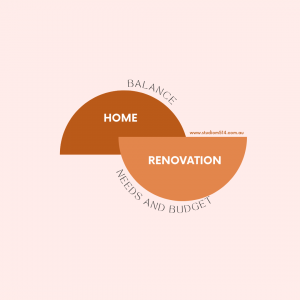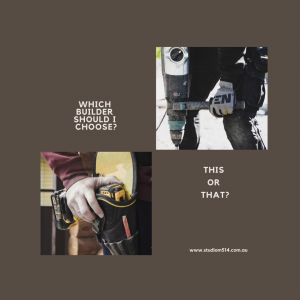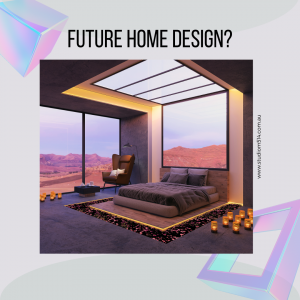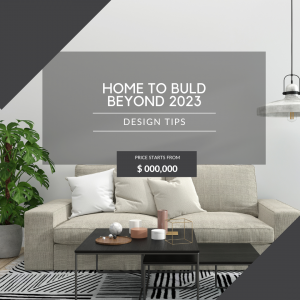If you are a homeowner who wants to build your dream home or knock down the old home and rebuild it, who should you hire to build your home in 2023?
We heard about different building companies going down last year. On top of that, we also heard about price increases in material, shortage of skilled labour, high-interest rates and high inflation rates.
Those factors create fear, uncertainty and confusion in the heart and minds of homeowners who are thinking of building or renovating their homes in 2023.
One thing crucial for homeowners to know is the different types of builders they can hire to build their homes in 2023. What are the differences between those builders, and what are their business models and processes?
Let’s look at the different types of builders you can hire to build your home.
- Turnkey builders
Turnkey builders usually have display homes where you can visit to see the samples of houses they offer to build. They typically market their service as a one-stop-shop service from design to construction. They also have house plan catalogues to choose from and a fixed selection of finishes, colour schemes and materials.
In short, turnkey builders have streamlined processes and ready-made products. It is like visiting a shop and choosing items from a selection in a catalogue, ready for you to purchase.
- Custom builders
Custom builders don’t have display homes or house plan catalogues. They build homes for homeowners based on specific designs, colour schemes, materials and finishes designed and put together by an architect/designer. They don’t sell ready-made designed homes but custom-made homes.
In short, custom builders build homes to the homeowner’s specific requirements designed and put together by an architect/designer. Custom builders provide the building and construction service separate from the design service which is provided by an architect/designer.
Let’s look at the pros and cons of these two builders, their business models and which homeowners would suit them.
The pros and cons of turnkey builders vs custom builders.
- Convenience vs personalised service
A turnkey builder provides a one-stop-shop service from design to finish construction. Homeowners work with one entity, the builder, who’ll coordinate the different phases of building a home from design until finished construction.
The trade-off of the convenience of a one-stop-shop service is homeowners will not have as much personalised service of working with an architect/designer of their choice during the design stage.
Instead, homeowners will go through a very linear process of being assigned from one person who performed a certain task to the next person. It’s a processed-based service rather than a personalised type of service, compared to what custom builders and an architect/designer collaboration can offer.
Custom builders don’t offer design services, they offer to build your home. This allows homeowners to engage an architect/designer of their choice and to spend more time and attention developing the design.
It also allows homeowners to have tailor-made floor plans to suit their specific needs, their land features and a wider range of finishes and materials.
- Streamlined process vs customization
A turnkey builder offers pre-designed plans and a pre-selected range of finishes and materials that streamlined the process for homeowners. This can save time on the overall time frame, especially during the design stage.
The trade-off of a streamlined process is limited customization. Some turnkey builders might offer customization, but they’ll charge a premium price compared to custom builders because customization is not their business model.
I often heard about homeowners who were drawn to the convenience of a one-stop shop service. However, as they proceed with the process, they feel the limited choice frustrates them because it adds up to the original base costs.
It is like flying with a budget airline. Every additional item is part of the extras that add to the base cost. Sadly, by this time, homeowners would have gone too deep into the contract. They have paid a considerable sum of money, which they’ll lose if they bail out of the contract.
Custom builders, on the other hand, allow homeowners a lot more flexible, customised service. The design and specification will be made and documented separately by the architect/designer during the design stage.
Homeowners can work separately with their architect/designer and cost consultant until they are happy with the design and choices of materials and finishes that meet their budget as determined by the cost consultant.
Then they can continue the process of finding the right custom builder to deliver the construction of the house.
- More controlled budget vs competitive tender costs
A turnkey builder offers an early locked-in contract price which includes design to finished construction, with few changes allowance. This resulted in fewer variables and unknowns on the overall cost to control the budget early in the project.
The trade-off of a controlled budget is homeowners won’t be able to tender their projects to other builders to compare prices. Homeowners are required to sign the contract for both design and construction as a package with the turnkey builders.
Often, homeowners don’t have the right to use the design done by a turnkey builder if they don’t continue with the construction process, even if they have paid up to the design stage. This often catches homeowners by surprise and the feeling of being trapped if they don’t understand how a turnkey builder work.
Custom builders allow homeowners the flexibility to tender their projects to seek competitive construction costs. Homeowners can shop around for the right builders, at the right price, before they sign the agreement with the builder of their choice.
This is due to the business model, where custom builders don’t offer design services with pre-designed plans or pre-selected finishes and materials like turnkey builders.
Instead, homeowners work with an architect/designer during the design stage, where homeowners own the right to use the design after they pay the architect/designer for their design/architectural service.
This way, homeowners can conduct competitive tendering using the drawings and specifications done by the architect/designer and get costing from as many custom builders as they like.
Another advantage of working with an architect/designer on a separate arrangement than a design and construct package with turnkey builders is, your architect/designer can help you conduct the tendering process to choose the right builder for your project.
The architect/designer can also help you administer the construction stage of your project so you don’t have to deal with the technicality of working with the custom builder. You have someone who can hold your hand and be your guide during the construction stage.
I trust this article will help you as homeowners to make an informed decision when you are deciding on who you should hire to build your home in 2023.
We at Studio M514 specialise in designing homes that adapt to different seasons of your life so you don’t have to move, sell and buy another home.
Book our Free clarity call to help you with the research and planning for your next home.
#melbournearchitect #melbournearchitecture #residentialarchitect #buildingyourhome #residentialbuilder











